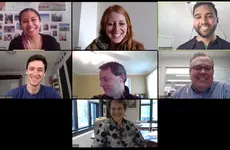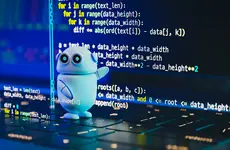What is Action Learning?
Following MIT's motto, "mens et manus," or "mind and hand," MIT Sloan Action Learning is a teaching method where students take what they learn in the classroom and apply it to a real business challenge.While our labs range widely in topics, industries, and regions, students achieve the following five goals no matter which ones they take.
- Apply classroom theories and frameworks to complex, real-world challenges.
- Structure and solve problems, developing project management skills.
- Collaborate effectively in teams, creating a psychologically safe space for open conversations.
- Learn to lead through ambiguous and unstructured situations.
- Reflect for personal and professional growth.
Get involved

Discover how you can make an impact
From the classroom to the field
Participating students get a rare, first-hand look at a wide array of challenges facing organizations, working on projects with hosts located in Boston, across the USA, and around the globe. We are committed to offering a diverse portfolio of courses so that students can immerse themselves in almost any industry they want to pursue, and experience hands-on learning multiple times throughout their time at MIT Sloan, unlike a traditional capstone opportunity. Throughout each Action Learning project, students reflect on themselves professionally and personally, so that they can become thoughtful, effective leaders.
Because we cover so many topics, students have the opportunity to work with host organizations in a variety of industries, both locally and around the world.
Hosts include:
- Community foundations
- Financial services
- Government entities
- Healthcare organizations
- Local nonprofits
- Multinational corporations
- Small businesses
- Startups
Our impact

See our projects
Our leadership in Action Learning
MIT Sloan’s mission “to develop principled, innovative leaders who improve the world and to generate ideas that advance management practice" has guided Action Learning labs for more than two decades. Aligned with that mission, Action Learning’s ultimate goal is to immerse students in real-life business situations that equip them with problem-solving skills, adaptability, and a team mindset that they can apply to their own organizations and careers.
In the time that MIT Sloan has been teaching Action Learning, students and faculty have worked with over 2,700 organizations. Together with their hosts, students have worked on projects that have left a lasting impact, including but not limited to:
- Scaling entrepreneurial ventures
- Discovering new market opportunities
- Identifying operational efficiencies
- Designing data-driven decision-making models
- Responding to open-ended problems
Questions?
Contact the Action Learning Office at actionlearning@mit.edu.
Staff












